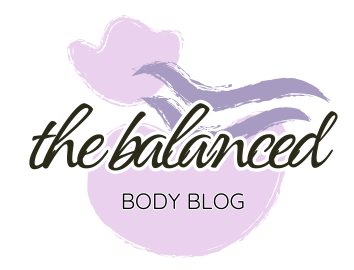The Healing Power of Journaling Through Grief

Because some pain deserves a safe place to land.
Grief is strange.
It doesn’t follow a timeline.
It doesn’t ask permission to arrive.
And it definitely doesn’t show up looking like you expected.
When my beloved father passed away, I didn’t realize how deeply it would shake every part of me — not just emotionally, but spiritually and physically too. The sadness wasn’t always loud. Sometimes, it was quiet and confusing. Other times, it was overwhelming, like waves crashing in the middle of an otherwise normal day. I didn’t always have the words to explain what I felt — but what I did have was a pen.
And that pen saved me.
This is why I created my grief journal — not just as a product, but as a space. A place to pour out, release, remember, and begin again. Because journaling didn’t fix my grief — but it helped me carry it with a little more grace. You can explore it here.
If you’re navigating your own loss, or know someone who is, here’s what I want you to know about the quiet power of journaling through grief.
💔 Why Grief Needs a Place to Land
Grief lives in the body as much as the heart. It shows up as brain fog, fatigue, sudden tears, numbness, irritability — sometimes all in one day. And if you don’t have a healthy outlet for those emotions, they don’t disappear. They just hide, waiting to resurface in other ways.
Journaling gives those tangled feelings somewhere to go.
It creates a container for the chaos. A soft landing place for the hurt.
When your mind is full, the page is where you can breathe again.
✍️ The Science-Backed Benefits of Grief Journaling
Let’s talk facts for a moment. According to multiple studies, expressive writing — especially during times of trauma or loss — can:
- Reduce symptoms of anxiety and depression
- Lower stress hormones in the body
- Improve immune system function
- Increase emotional regulation and clarity
In other words? Journaling isn’t just nice. It’s medicine.
🌿 How Journaling Helped Me Heal (One Page at a Time)
When my dad passed, I didn’t know what I was feeling — let alone how to explain it to anyone else. So I wrote it down.
Some days it was messy.
Some days it was a list of questions.
Some days it was just… “I miss you.”
But slowly, the pages became a safe space. I wasn’t performing for anyone. I wasn’t trying to be strong. I was just… me. Honest. Raw. Real. And little by little, the grief didn’t feel as heavy. Not because it disappeared, but because I had finally stopped carrying it all in silence.
🖊️ 5 Ways to Journal Through Grief (Even If You Don’t Know What to Say)
If you’re new to journaling — or you’ve stared at a blank page with zero words — try starting with these gentle prompts:
- “Today I miss…”
This one is simple, but powerful. Let your heart speak without overthinking. - “What I wish I could say to you…”
Write them a letter. Say the things you didn’t get to say. - “My grief feels like…”
Is it a wave? A knot in your chest? A quiet ache? Describe it without judgment. - “A memory I never want to forget…”
Keep their memory alive on the page. Write it like a story. - “Here’s how I’m honoring your life…”
Whether it’s lighting a candle, wearing their favorite color, or simply breathing — this helps bring peace into the pain.
These are just starters. You don’t have to follow structure. You don’t even have to write full sentences. This is your space. Make it yours.
📓 Why I Created a Guided Grief Journal
After I had walked through my own loss, I knew I wanted to offer others the same comfort journaling gave me — especially those who didn’t know where to begin.
That’s why I created the Forget You Not Grief Journal — a beautifully designed space filled with compassionate prompts, gentle affirmations, and room to reflect, cry, and remember. It’s more than a notebook. It’s a quiet companion.
And most importantly, it reminds you: you’re not alone.
🌙 Final Thoughts: You Don’t Need to Have It All Figured Out
Grief is deeply personal. There’s no right way to do it. But what I’ve learned — and continue to learn — is this:
Healing doesn’t mean forgetting.
Moving forward doesn’t mean moving on.
And writing it out doesn’t make it hurt less — it just makes it less lonely.
If you’re walking through loss right now, give yourself the gift of stillness and space. Let the journal hold what your heart can’t carry all at once.
Because the words you don’t say still matter.
And on the page, they finally have a place to be seen.
💛 Want a place to start?
Grab the Forget You Not Grief Journal — created from my own healing journey to support yours.
It’s soft. Soulful. And ready when you are.


